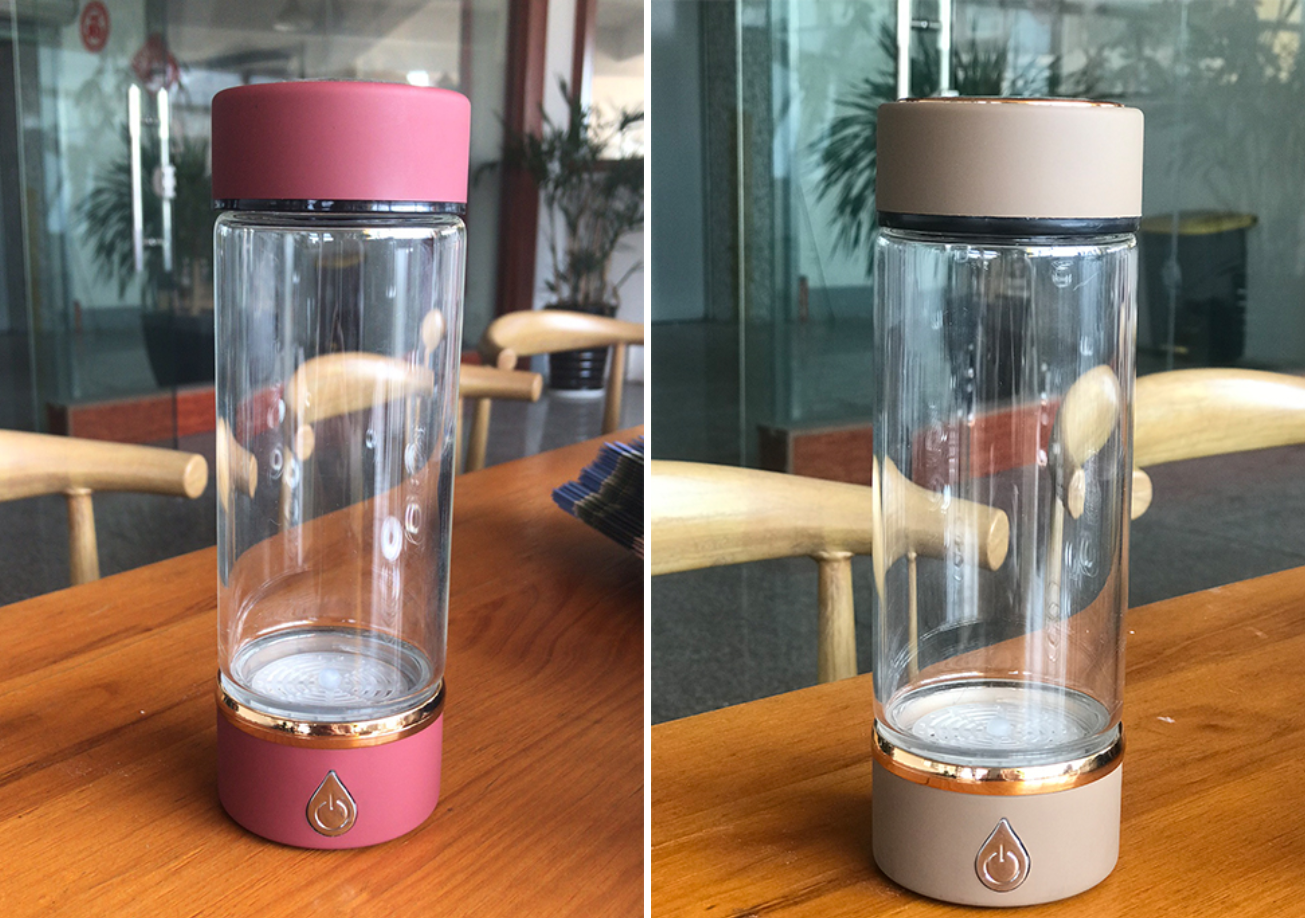Hydrogen Inhalation Therapy
In November 2016, hydrogen inhalation therapy was included in the "Advanced Medical Category B" by the Ministry of Health, Labour and Welfare of Japan. The most active advocate of clinical research on hydrogen inhalation therapy is Keio University in Japan. The popular Japanese program Shinichi Hadori MORNING SHOW reported on the hydrogen inhalation therapy of Keio University School of Medicine.
View the image to know more about our hydrogen water bottle.
Why do we need to inhale hydrogen into the body?
Professor Motoaki Sano said: “Hydrogen has been proven to be a representative gas that is harmless to humans and living organisms. In fact, our body can also produce hydrogen. Intestinal bacteria continue to produce hydrogen, and our body is always full of a certain concentration. hydrogen."
Then why does the human body need to breathe in additional hydrogen?
Mr. Sano replied: "The hydrogen produced by the intestinal bacteria is very small, and the scope of influence is limited. If you inhale hydrogen from the outside, it will have a chance to affect the whole body, and the concentration of hydrogen in the body will increase. Most of the hydrogen produced in the intestine passes through the liver. Exhausted from the right atrium and lungs will not reach the stomach, heart, brain, etc., but if hydrogen is inhaled from the outside, it will help the position in the body where the hydrogen concentration is low.
The hydrogen produced by the intestinal bacteria is very small, and most parts of the human body cannot benefit from it. When the whole body is full of hydrogen gas filled with intestinal bacteria, inhaling hydrogen gas may have a positive effect. When can humans use hydrogen inhalation therapy?
In animal experiments conducted in various countries around the world, the recognized functions of hydrogen molecules include "inhibiting inflammation" and "stabilizing blood circulation." The experiment with the highest effect is "reducing cerebral infarction".
That is,The inhalation effect of hydrogen has been confirmed in animal experiments, but it has not been confirmed in human experiments. However, because hydrogen inhalation does not require special equipment and technology, it can be expected to spread in clinical applications. It has been spread in more than 20 countries across Japan. The "hydrogen inhalation therapy" project carried out by medical institutions aims to collect 360 cases."
As the application of hydrogen molecules in the human body has not yet obtained extensive research and certification at the national certification level, Japan has not yet made hydrogen molecules medicated and medical insurance. "We still believe in the future prospects of hydrogen. After all, it has already achieved results in animal experiments, and we can have more application possibilities." Sano said.

